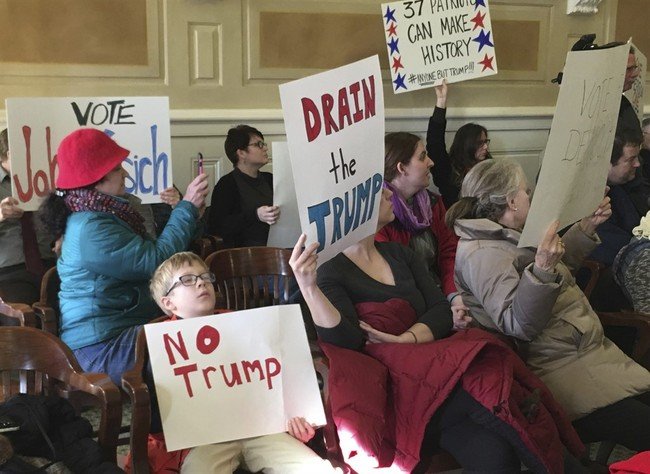Well, it’s official. Oregon has signed on to the National Popular Vote Interstate Compact. And so the entire Left Coast joined in on this effort, which is no surprise. Yesterday, Democratic Governor of Oregon, Kate Brown, signed the bill into law. California and Washington state joined this movement years ago, and then-Gov. Jerry Brown of California and Christine Gregoire of Washington state joined the effort to change the Electoral College in 2009 and 2011, respectively (via Oregonian):
Oregon’s Electoral College votes could potentially be awarded to the presidential candidate who does not receive the most votes in Oregon. That’s because of a bill signed Wednesday by Democratic Gov. Kate Brown.
Her signature on Senate Bill 870 makes Oregon now the 15th state, along with the District of Columbia, to join the National Popular Vote compact.
The agreement is an agreement to award a state’s Electoral College votes to the presidential candidate who receives the most votes nationwide, regardless of whether that candidate won that state.
“I think it’s really important to be part of the national conversation about the presidential election,” Brown said. “I think it will encourage candidates to spend more time in states like ours and talk directly to our voters.”
Folks, this came to prominence after Hillary Clinton lost the 2016 election. She won more popular votes than Donald Trump, but that’s not how we elect the president of the United States. You all know this, even though the liberal media and other progressives constantly remind us that Lady Macbeth became more popular because of California. Yes, Hillary got more votes she didn’t win in the popular vote, unless 48 percent is 50+1, which means liberals live in Orwell’s Oceania where 2+2=5.
But this is not just a liberal issue. Many Republicans have panned the National Popular Vote Interstate Compact, noting that it would remove the influence of swing states, motivate hundreds of thousands of GOP voters in blue states who stay home to vote, enable candidates to campaign based on their true beliefs and prevent bad policy aimed at winning over the mentioned swing states. A prime example is the Bush administration’s No Child Left Behind Act, which, while good at exposing bad teachers, was an overall failure that fell far low of its intended educational goals. This was to recruit soccer moms in Hamilton County, Ohio. The latter is probably the best argument for supporting the deal if you want to present it to Republicans. Plus the ability to run a truly conservative red meat campaign, with all the hardcore positions tailored to the party’s base, without fear of losing favor in swing states. I’m sure the GOP can win this contest given what the Democrats are pushing. At the same time, why change it?
In all of our history, only five times has the winner of a presidential election won the Electoral College but not the popular vote. We’re still here. One of the main reasons some GOP members were watching this was because the current system was already on the verge of locking down Democrats. This may still be the case. Florida is the leader. If things turn reliably blue, like in New Mexico, then the GOP is cooked in the national election, but the Florida GOP did well to avert disaster by winning the 2016 and 2018 elections. I like the current system, but I’m not afraid of an open discussion about the compact. Still, some Democrats are even wary of the move. We said Nevada might be the next western state to join the effort, but its Democratic governor, Steve Sisolak, vetoed the bill in May. His reason is what opponents of this push usually hear – and it is not wrong. In fact, he supports overthrowing the Republicans (via CBS News) [emphasis mine]: :
Nevada Gov. Steve Sisolak, a Democrat, vetoed a bill joining a national compact to elect presidents by popular vote, saying the bill would reduce the state’s political power. If Nevada joined the “National Popular Vote Interstate Compact,” adopted by 14 states and D.C., it would mean the state would award its Electoral College votes to the presidential candidate who won the national popular vote.
Sisolak wrote in a letter to the speaker of the Nevada Assembly that the bill would allow the state’s voters to “override the will of the state’s electorate.”if a candidate won the national vote but lost in Nevada. He said it too joining the agreement “could leave a sparsely populated western state like Nevada with a significantly weakened voicein the results of national electoral contests.
Full disclosure: I attended a seminar on the Interstate Popular Vote Compact hosted by the Presidential Election Research Institute in 2017.


